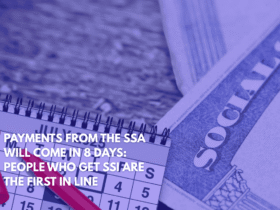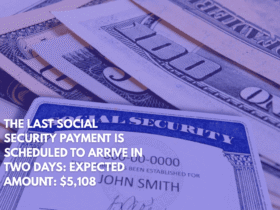Starting September 30, 2025, the Social Security Administration (SSA) will stop sending paper checks for federal benefits like Social Security and SSI. Everyone still getting paper checks must switch to electronic payment options.
While only about 0.7% of the 68 million benefit recipients currently get checks, this change is permanent and affects a small but important group.
Why This Change Is Happening
During the COVID‑19 pandemic, mail theft and check fraud increased. Treasury checks have been found to be about 16 times more likely to get lost, stolen, returned, or altered compared to electronic transfers.
To reduce these risks, a federal order from March 25 (under President Trump’s administration) requires all federal payments be made digitally by the 2025 deadline.
Who Will Be Affected
Around 456,000 people still rely on paper checks. Many are older adults, people in rural areas, individuals with disabilities, or those who don’t have bank accounts or struggle with digital tools. These groups could face problems if they don’t take action in time.
Which Payments Are Covered
This isn’t just about Social Security. The change applies to all federal payments, including Social Security Disability Insurance (SSDI), Supplemental Security Income (SSI), IRS tax refunds, and similar programs. After the deadline, paper checks for these programs will no longer be available.
How to Keep Getting Your Benefits
Beneficiaries currently using paper checks need to switch before September 30, 2025. Here are their options:
-Direct deposit into a bank or credit union account.
-Use a government-issued prepaid debit card (such as Direct Express).
-Use approved digital wallets or real‑time payment systems.
If someone has no bank account or faces serious hardship, they can apply for an exemption by contacting the SSA or the Treasury Department. But if nothing is updated by the deadline, their benefits could be delayed or suspended.
2025 Benefit Amounts
Here’s a quick overview of maximum monthly payments next year:
-Early retirement (age 62): up to $2,831 (before age reduction).
-Full retirement (age 67): up to $4,018.
-Late retirement (age 70): up to $5,108, with extra credits.
-SSDI: up to $1,620 for blindness, or $1,950 for other disabilities.
-SSI: up to $967 for individuals, $1,450 for couples.
-Survivors benefits: Between 71% and 100% of the deceased worker’s benefit, depending on age.











Leave a Reply